Our Services
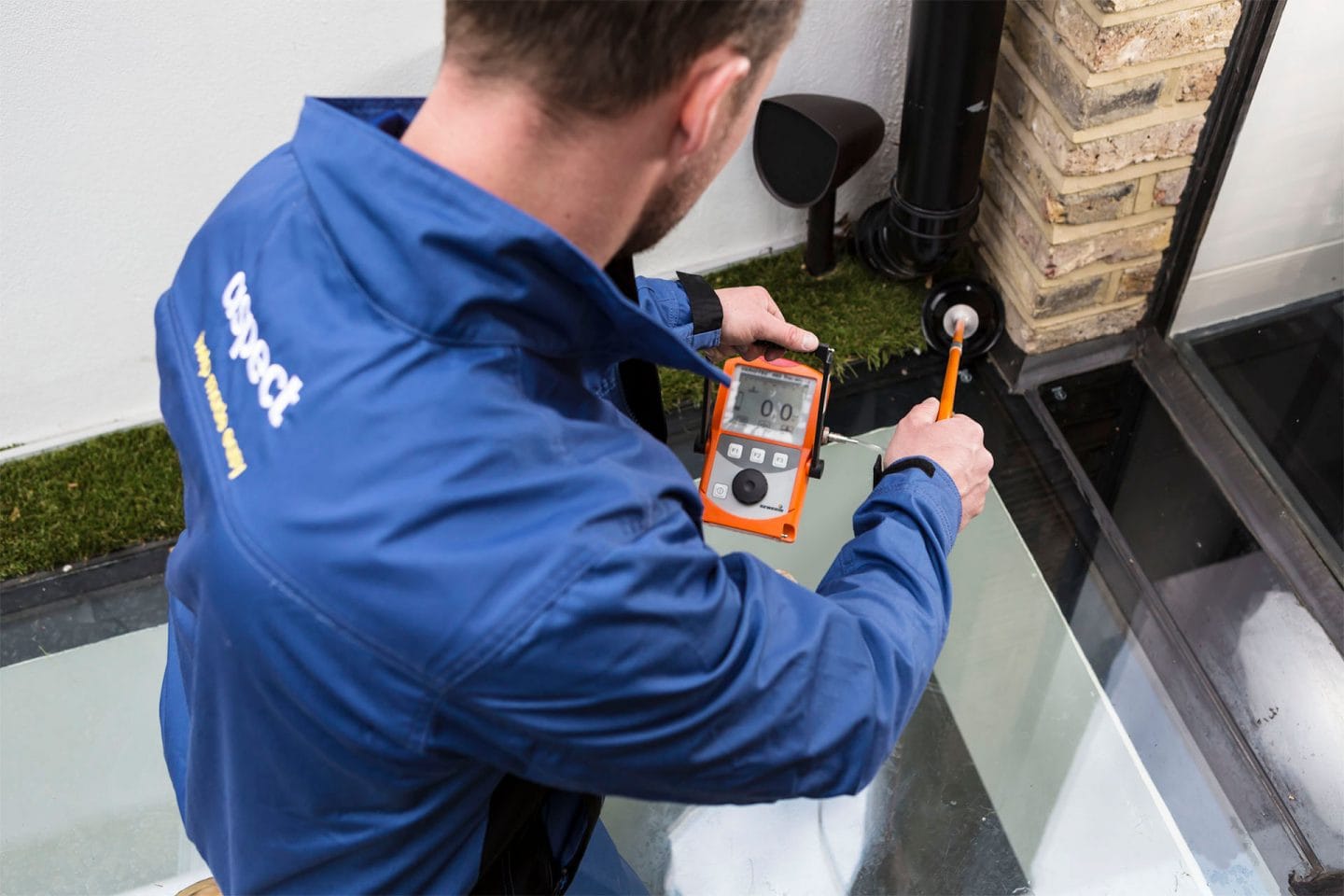
01.
Leak Detection
Leak detection in plumbing refers to the process of identifying and locating water leaks in a plumbing system. Water leaks can be costly, waste water, and cause damage to buildings and property. There are various methods used for detecting leaks in plumbing, including visual inspection, pressure testing, and acoustic leak detection.
Visual inspection involves looking for visible signs of leaks, such as water stains, mold, or wet spots on walls or ceilings. Pressure testing involves pressurizing the plumbing system and monitoring the pressure to detect drops, which may indicate a leak. Acoustic leak detection involves using specialized equipment to listen for the sound of water escaping from pipes or fittings.
Modern leak detection techniques may use electronic devices and sensors to monitor the plumbing system and alert homeowners or building managers to the presence of a leak. Regular maintenance and inspection of plumbing systems can help prevent leaks and minimize damage if they occur.
02.
Drain Cleaning
Drain cleaning is the process of removing any blockages or obstructions that are preventing water or other liquids from flowing through a drain system. This can be done in a number of ways, including using chemical drain cleaners, drain snakes, or hydro jetting equipment.
Chemical drain cleaners are typically used for small clogs or slow drains, and work by dissolving the blockage with chemicals such as sodium hydroxide or sulfuric acid. However, they can be harmful to the environment and may damage pipes if not used properly.
Drain snakes, also known as plumbing snakes or augers, are flexible cables with a coiled spring at one end that can be inserted into a drain to break up and remove blockages. They are useful for more stubborn clogs and can be used in both residential and commercial settings.
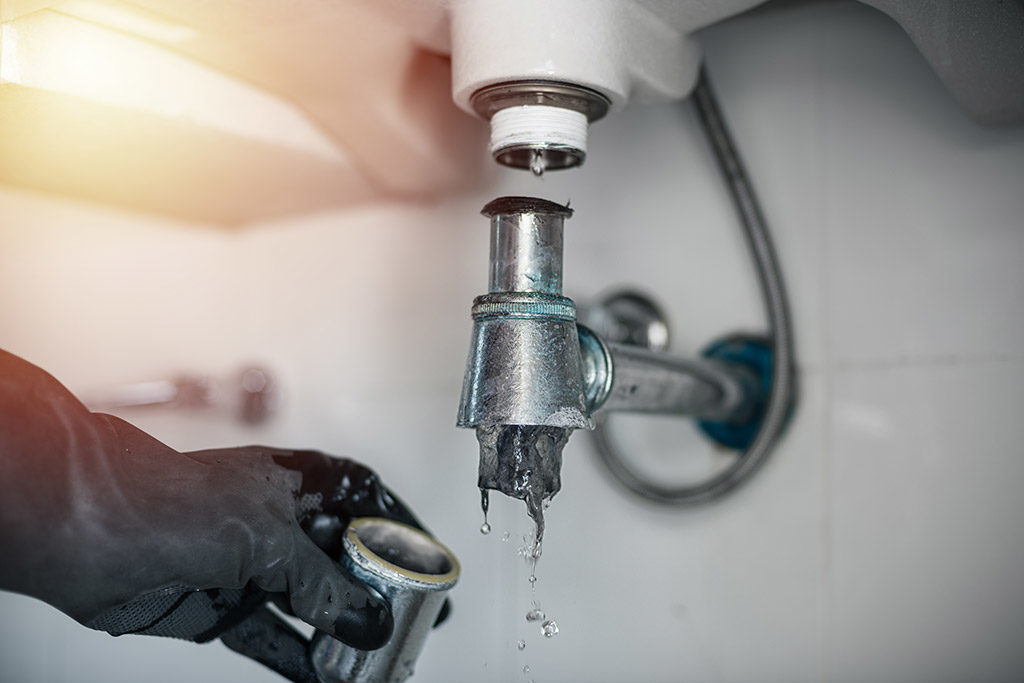
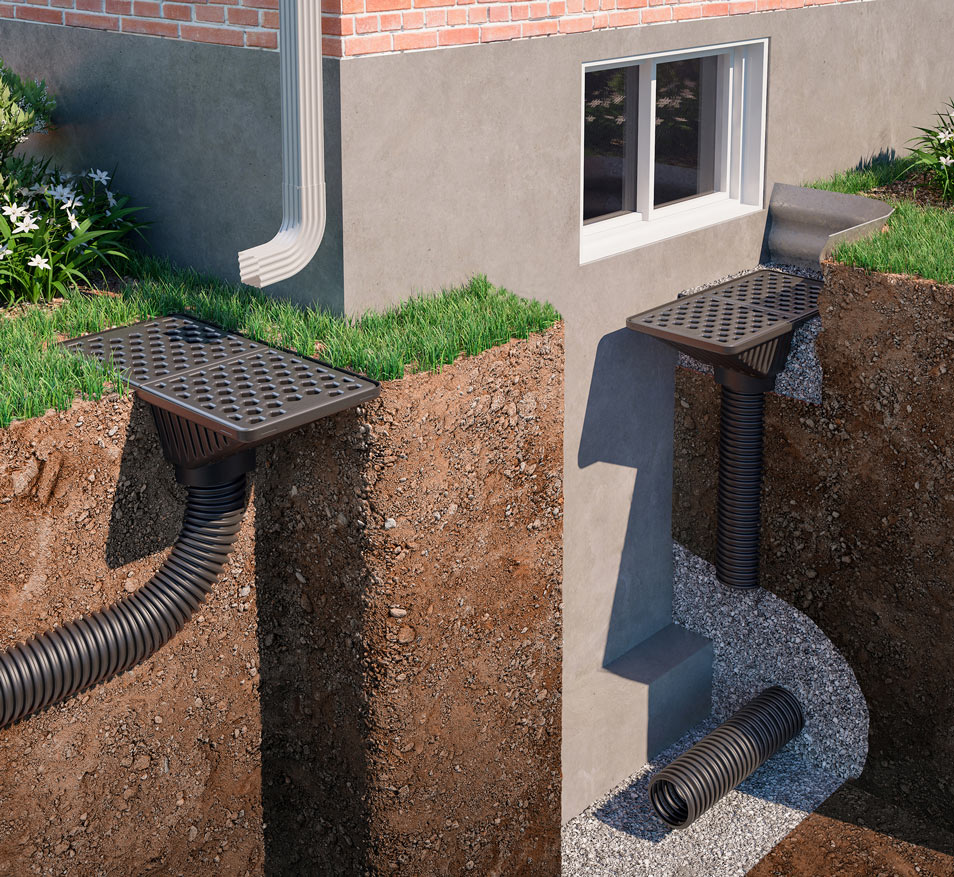
03.
Leak Detection
A drain is an essential component of a plumbing system that allows wastewater to flow out of the home or building. Drain installation involves several steps and requires some plumbing expertise.
Overall, proper drain installation is critical to ensure efficient and safe removal of wastewater from your home or building. If you are not comfortable installing a drain yourself, it is recommended that you seek the help of a professional plumber.
04.
Emergency Services
Plumbing emergencies such as burst pipes, gas leaks, sewer backups, overflowing toilets, and malfunctioning water heaters can cause significant damage to your property and require immediate attention from an emergency plumber. An emergency plumber can quickly locate the source of the problem, turn off the water supply or gas line if necessary, and repair or replace the damaged component. They can also clear blockages and ensure that the property is safe before allowing anyone to return. It’s important to have the contact information for a licensed and experienced emergency plumber readily available in case of an urgent plumbing issue.
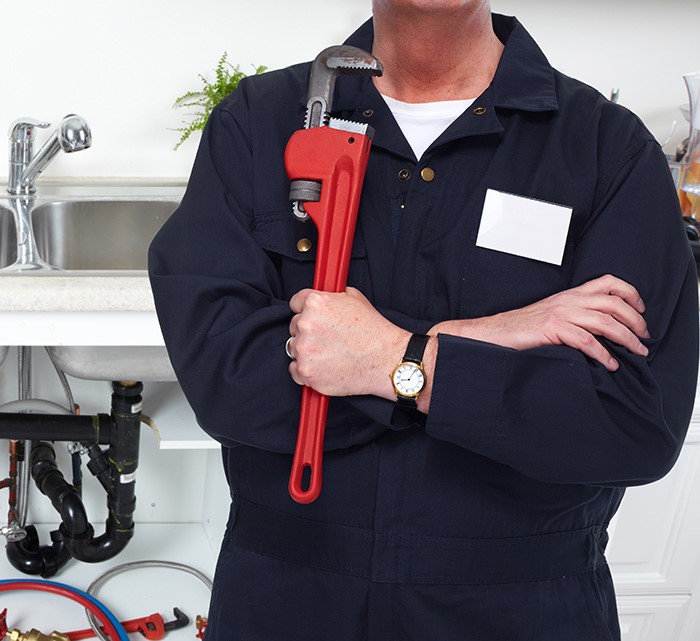
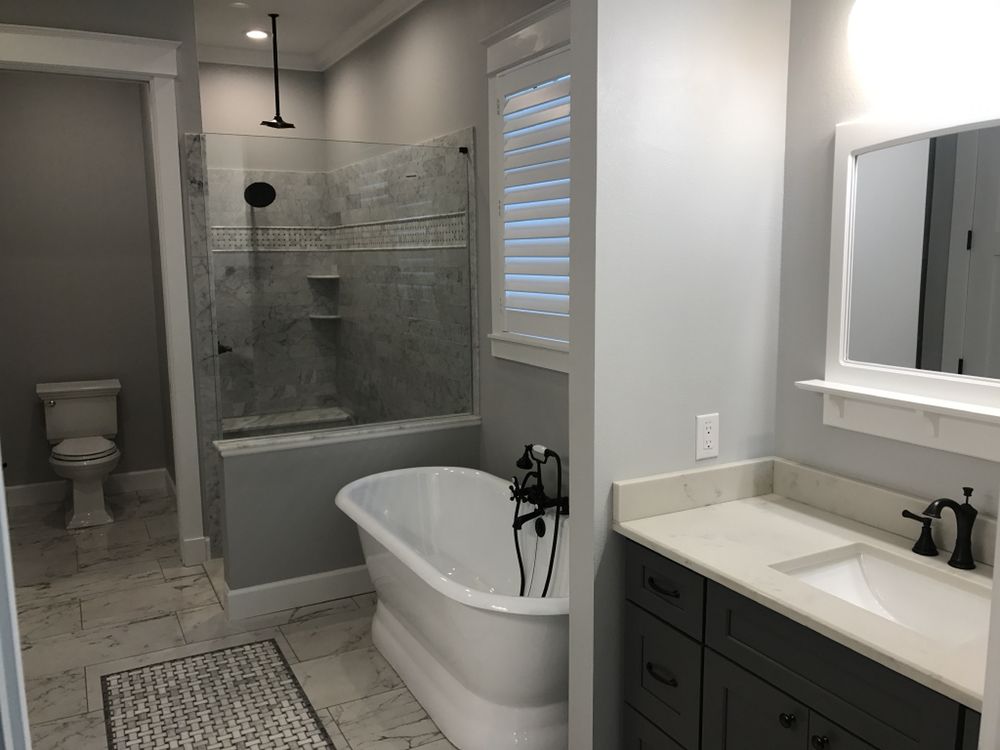
05.
Bathtub and Shower Installation
When installing a bathtub or shower in a bathroom, a plumber or contractor will need to determine the placement of the fixture and make connections for the drain and water supply using appropriate materials. They will also install fixtures like faucets and showerheads, and surround the bathtub or shower with tile or other materials. It’s important to ensure proper waterproofing and ventilation to prevent moisture buildup and damage to the surrounding walls and floors. It’s recommended to hire a licensed and experienced professional to handle the installation.
06.
Bathtubs & Shower Repair
Bathtubs and showers can develop various problems that require repair over time. A plumber can diagnose and fix common issues such as leaks, clogs, low water pressure, damage to the fixture, malfunctioning fixtures, and mold and mildew growth. They can repair or replace damaged components, fix clogs, and address issues with water pressure or malfunctioning fixtures. Additionally, they can inspect for mold and mildew growth and recommend appropriate solutions. It’s important to hire a licensed plumber to diagnose and repair any issues to ensure the safe and functional operation of the bathtub or shower.
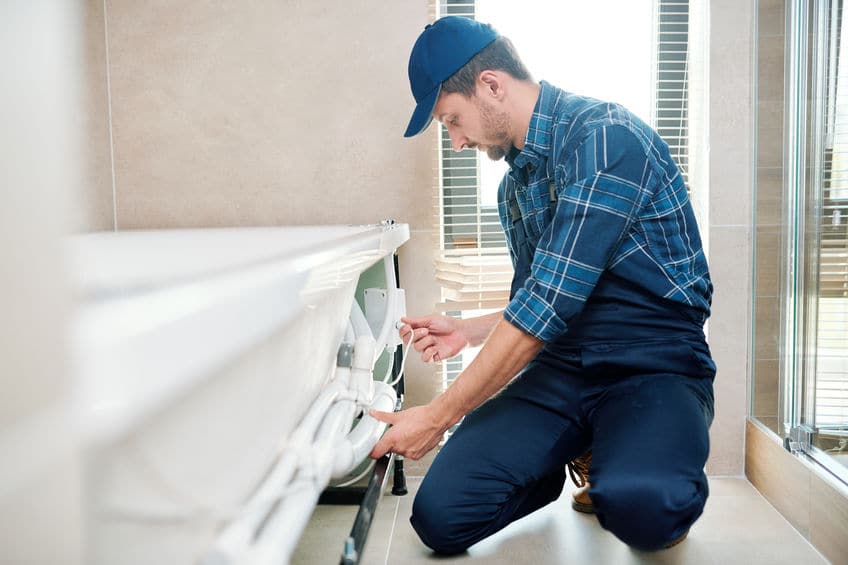
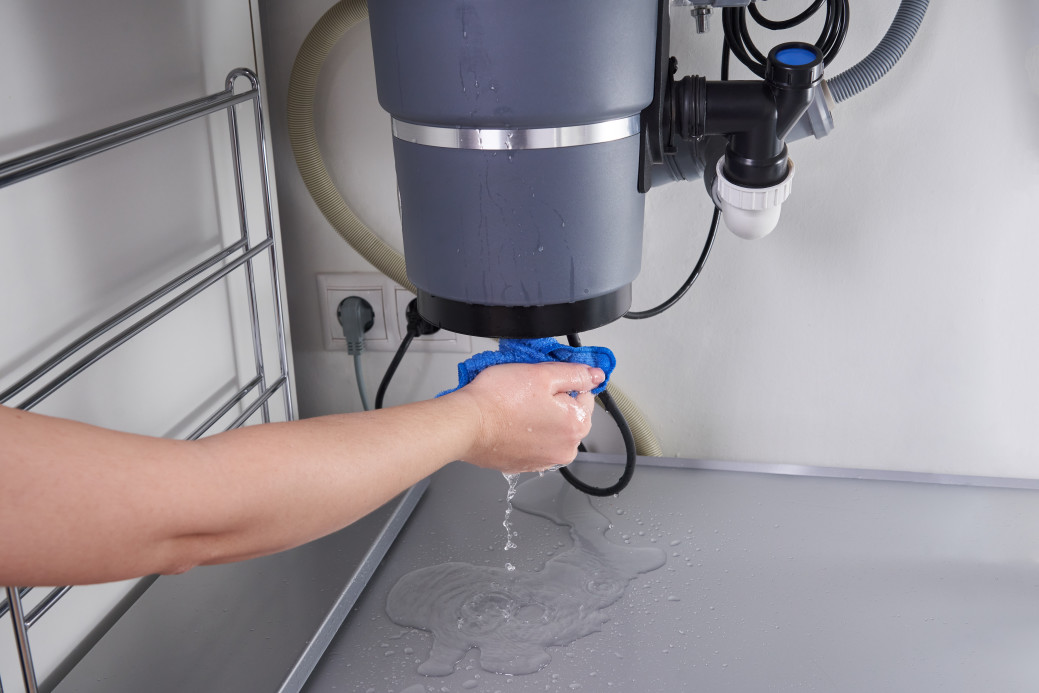
07.
Garbage Disposal Repair
Garbage disposals can develop various problems such as clogs, leaks, motor issues, jammed blades, and strange noises. A plumber can diagnose the issue with the garbage disposal and provide appropriate repairs. They can use different tools to remove clogs, repair or replace damaged components, unjam blades, and fix motor issues. Additionally, they can advise on proper use and maintenance of the garbage disposal to prevent future problems. It’s important to hire a licensed plumber to repair any issues with the garbage disposal to ensure its safe and proper operation.
08.
Garbage Disposal Installation
Installing a garbage disposal involves selecting the right unit, preparing the space, mounting the unit, connecting it to an electrical outlet, and testing the installation. The plumber can advise on the appropriate size and type of disposal for your needs and plumbing system, and can install the unit by mounting it to the sink flange, connecting it to the electrical outlet, and testing it for proper operation. It’s important to have a licensed plumber perform the installation to ensure that it is done correctly and safely. They can also provide advice on proper use and maintenance of the garbage disposal to ensure its longevity and safe operation.
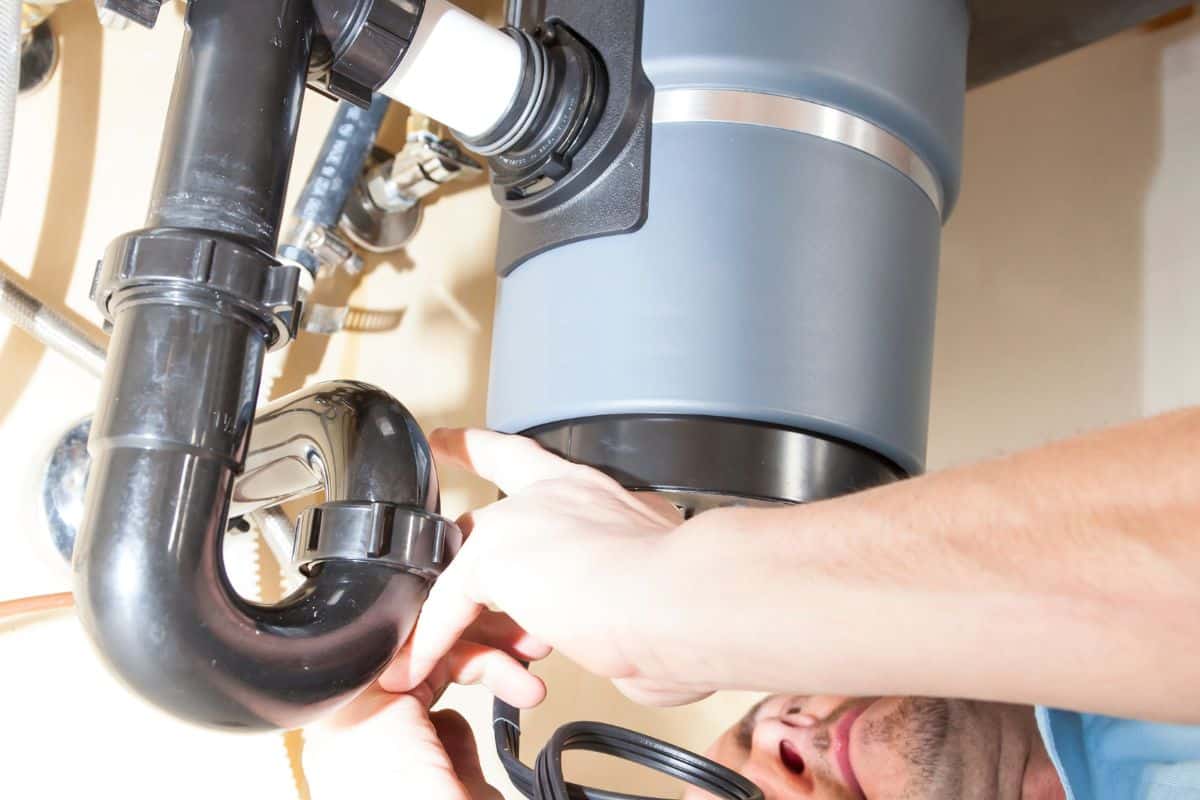
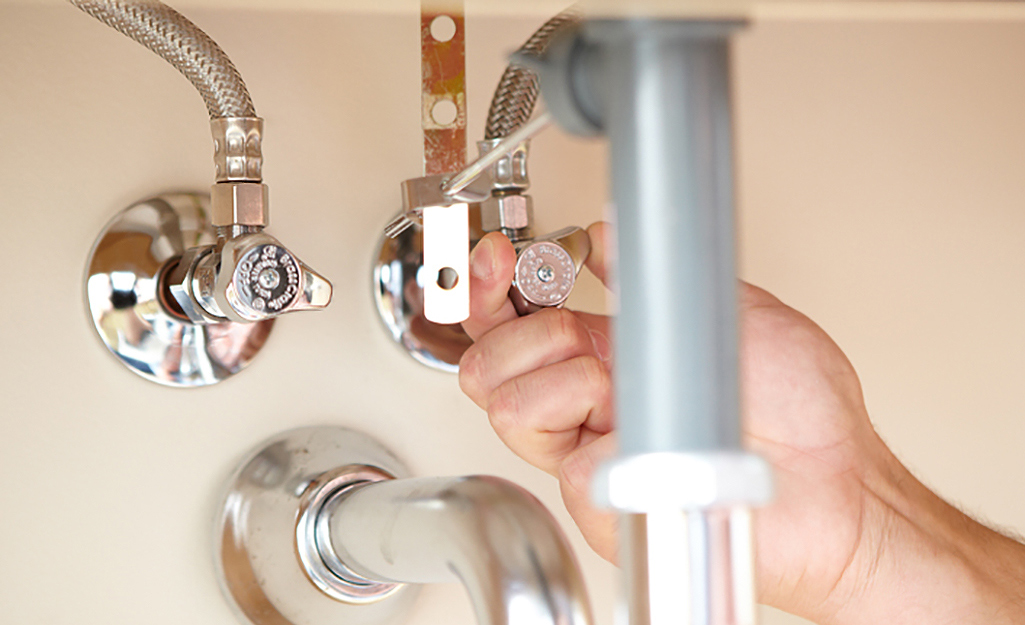
09.
Faucet Installation
Faucet installation involves turning off the water supply, removing the old faucet, installing the new faucet according to the manufacturer’s instructions, connecting the water supply lines, and testing the new faucet for leaks. It’s important to use the appropriate tools, such as a basin wrench and adjustable wrench, to ensure proper installation. Selecting the right faucet size and style is also important. If you’re not comfortable performing the installation yourself, it’s best to hire a licensed plumber to install the faucet for you.
10.
Faucet Repair
Faucet repair involves diagnosing the issue, turning off the water supply, disassembling the faucet, replacing any damaged components, reassembling the faucet, and testing it for proper operation. A licensed plumber should be hired to perform faucet repair to ensure that the repair work is done correctly and safely. They can also provide advice on proper use and maintenance of the faucet to prevent future problems.
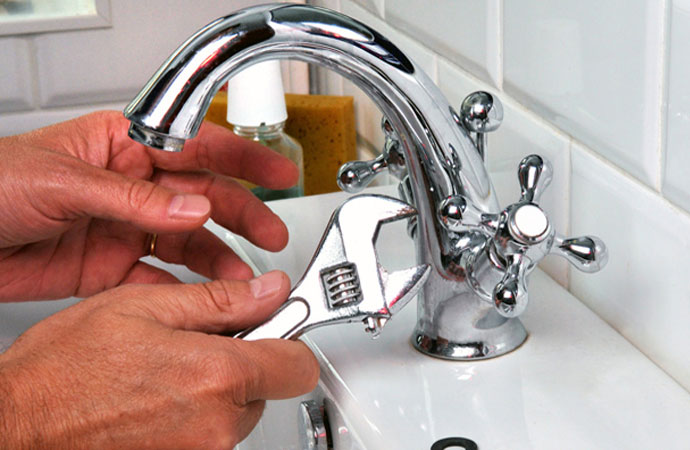
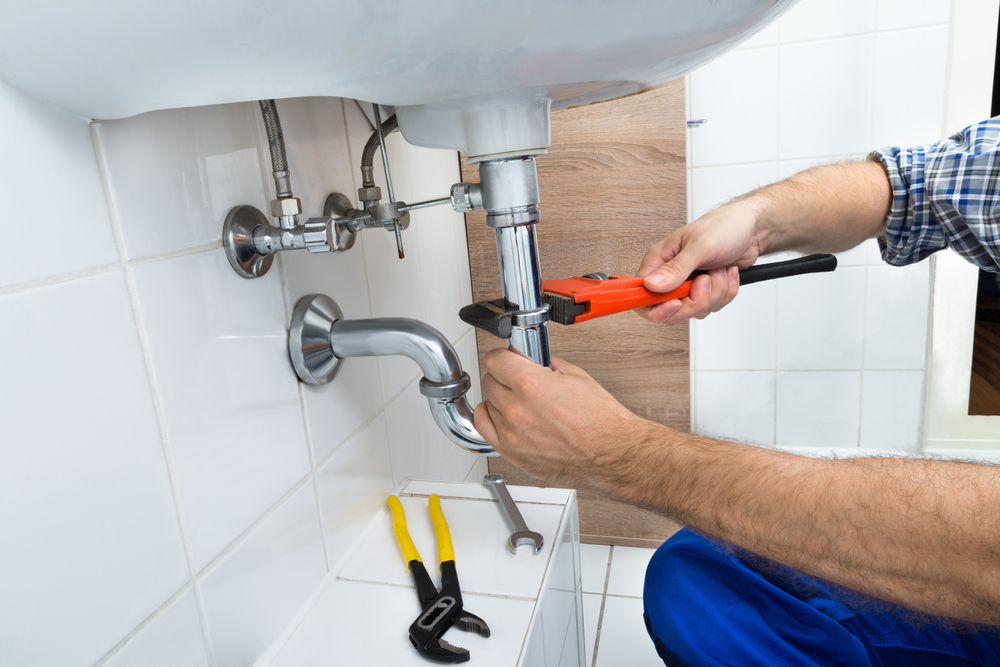
11.
Pipe Installation
Pipe installation is a critical part of plumbing that involves laying down pipes for carrying water, gas, and waste. The process includes designing the layout and size of pipes, cutting and fitting the pipes together, installing and securing them in place, and testing the system for leaks and pressure. It’s important to follow building codes and regulations and to hire a licensed plumber to perform the installation. The process can vary based on the type of pipes and building layout, so a qualified plumber will ensure the installation is done correctly and safely.
12.
Pipe Repair
Pipe repair is an important aspect of plumbing that involves identifying issues and damage to pipes, determining the appropriate repair method, and carrying out the repair work. Repair methods include patching, relining, or replacing the damaged section of the pipe. After repairs are completed, a pressure test is conducted to ensure the pipes are functioning correctly. It’s crucial to address any issues with pipes quickly to prevent further damage, and it’s best to hire a licensed plumber for repairs. Regular maintenance and inspections can also help prevent problems and extend the lifespan of the plumbing system.

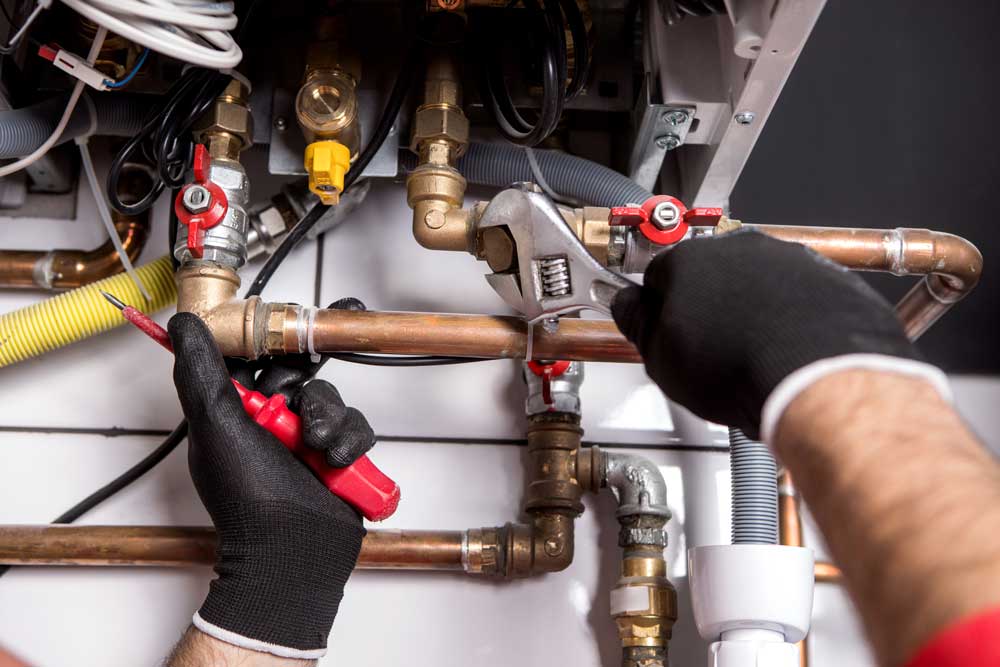
13.
Gas Line Services
Gas line services in plumbing refer to the installation, maintenance, and repair of gas lines that supply natural gas to appliances. Gas line installation should only be performed by licensed and trained professionals, who will assess the location and ensure compliance with local codes and regulations. Regular maintenance is important for safety and efficiency, and gas leaks should be immediately addressed by a licensed plumber. Gas line repair is necessary for addressing leaks or damage. Overall, gas line services are crucial for ensuring the safety of individuals and properties.
14.
Toilet Repair
Toilet repair involves the maintenance and repair of toilets to ensure that they are functioning properly. Some common toilet repair issues include running toilets, clogged toilets, leaking toilets, weak flushing, and overflowing toilets. A licensed plumber can inspect the toilet and diagnose the cause of the issue, then make the necessary repairs, such as replacing damaged parts or removing blockages. It’s important to address toilet repair issues promptly to prevent further damage and water waste. Regular maintenance, such as inspecting for leaks and cleaning the bowl and tank, can also help prevent toilet repair issues.
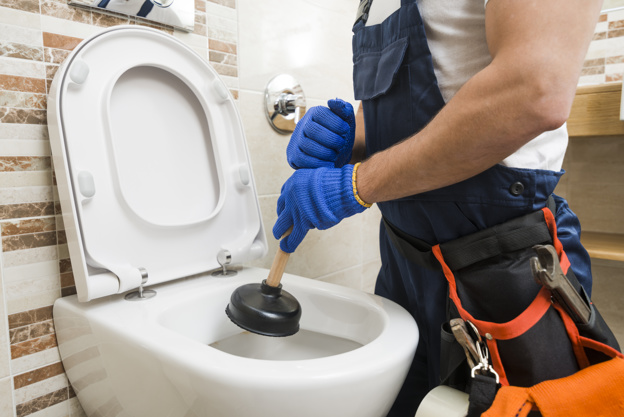
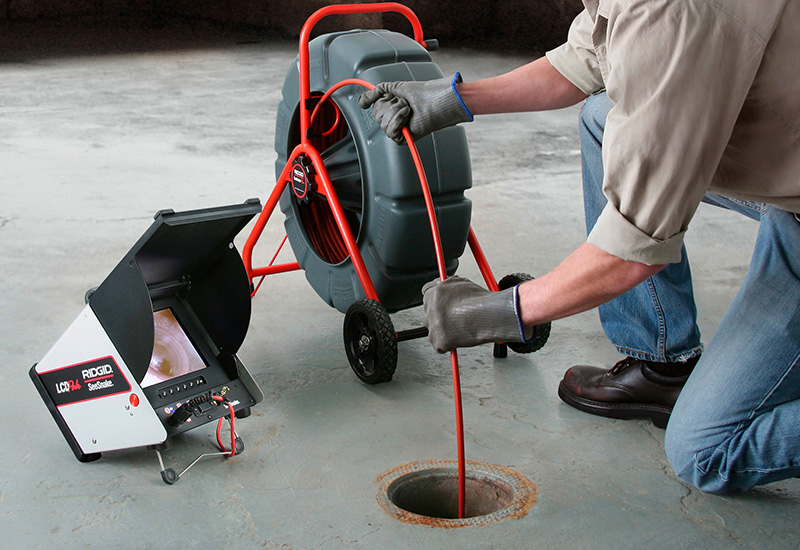
15.
Sewer Services
Sewer services in plumbing involve various tasks related to the installation, maintenance, and repair of sewer lines and related equipment. These tasks include installing new sewer lines, repairing damaged sections of sewer lines, cleaning out blockages, replacing damaged sewer lines, and inspecting sewer lines for damage or potential issues. These services are important for ensuring that sewer lines are functioning properly and preventing damage to properties and the environment. It’s best to hire a licensed plumber to perform these tasks to ensure that they are done safely and effectively.
16.
Toilet Installation
Toilet installation in plumbing is the process of installing a new toilet or replacing an existing one. The steps involved in toilet installation include turning off the water supply, removing the old toilet (if necessary), preparing the flange, installing a wax ring to seal the connection, setting the new toilet onto the flange, securing it to the floor with nuts and bolts, reconnecting the water supply line, and testing the toilet for leaks or other issues. It’s important to install the toilet correctly to ensure that it functions properly, and it’s recommended to hire a licensed plumber if you’re not comfortable doing the job yourself.
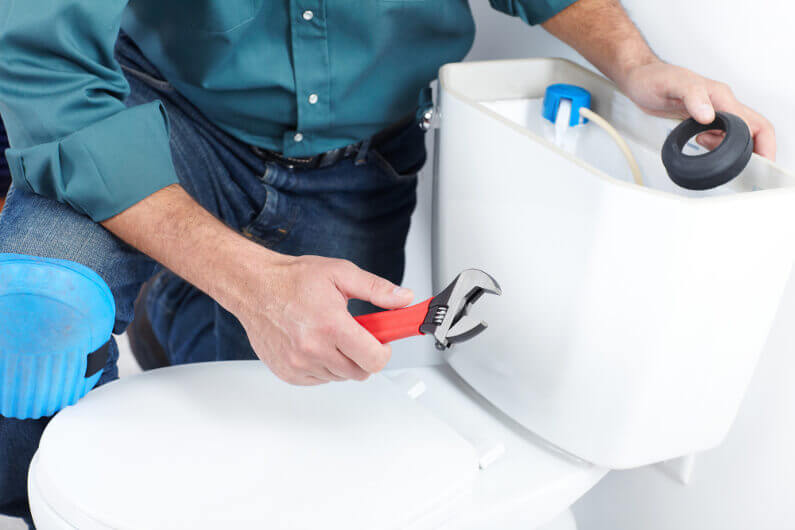
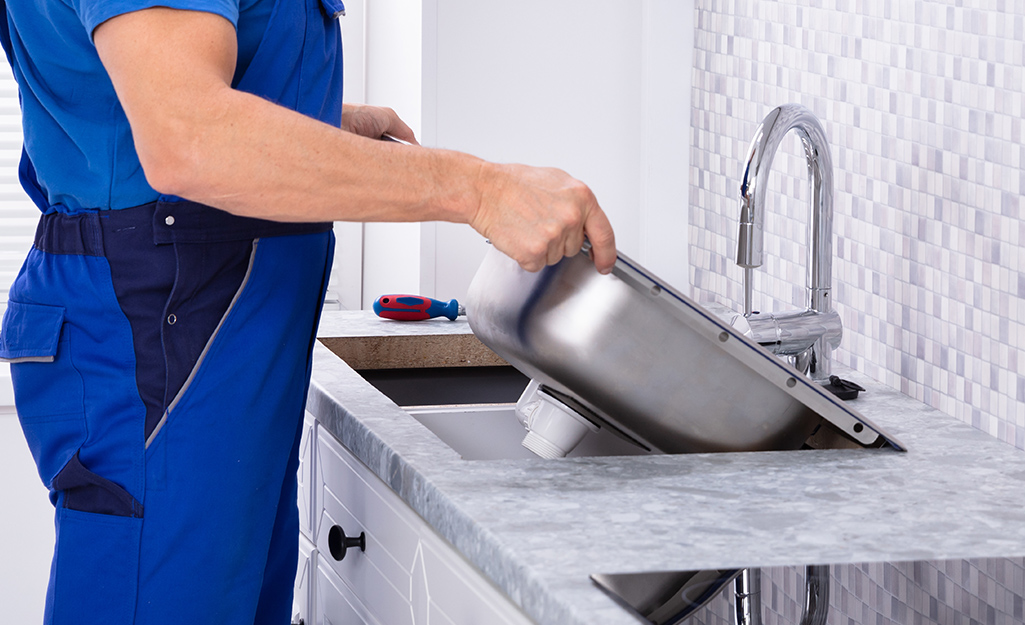
17.
Sink Installation
Sink installation in plumbing involves the process of installing a new sink or replacing an existing one. The basic steps involved in sink installation include preparing the work area, installing the faucet, attaching the drain and strainer, securing the sink to the countertop with silicone caulk, connecting the water supply lines, and testing the sink for proper function. It’s important to follow the manufacturer’s instructions and local codes to ensure that the sink is installed correctly and functions properly. If you’re not comfortable installing a sink yourself, it’s recommended to hire a licensed plumber to do the job for you.
18.
Water Filter Services
Water filter services refers to the installation, maintenance, and repair of water filtration systems, which are used to remove impurities and contaminants from tap water. Plumbers can provide a variety of services related to water filters, including installation of different types of filters, maintenance and repair of filters to keep them working properly, and testing of the water quality to determine which filtration system is best for a household. Regular maintenance and service of water filters is important to ensure that they continue to provide clean, healthy water for a household, and a licensed plumber can help with all aspects of water filter services.
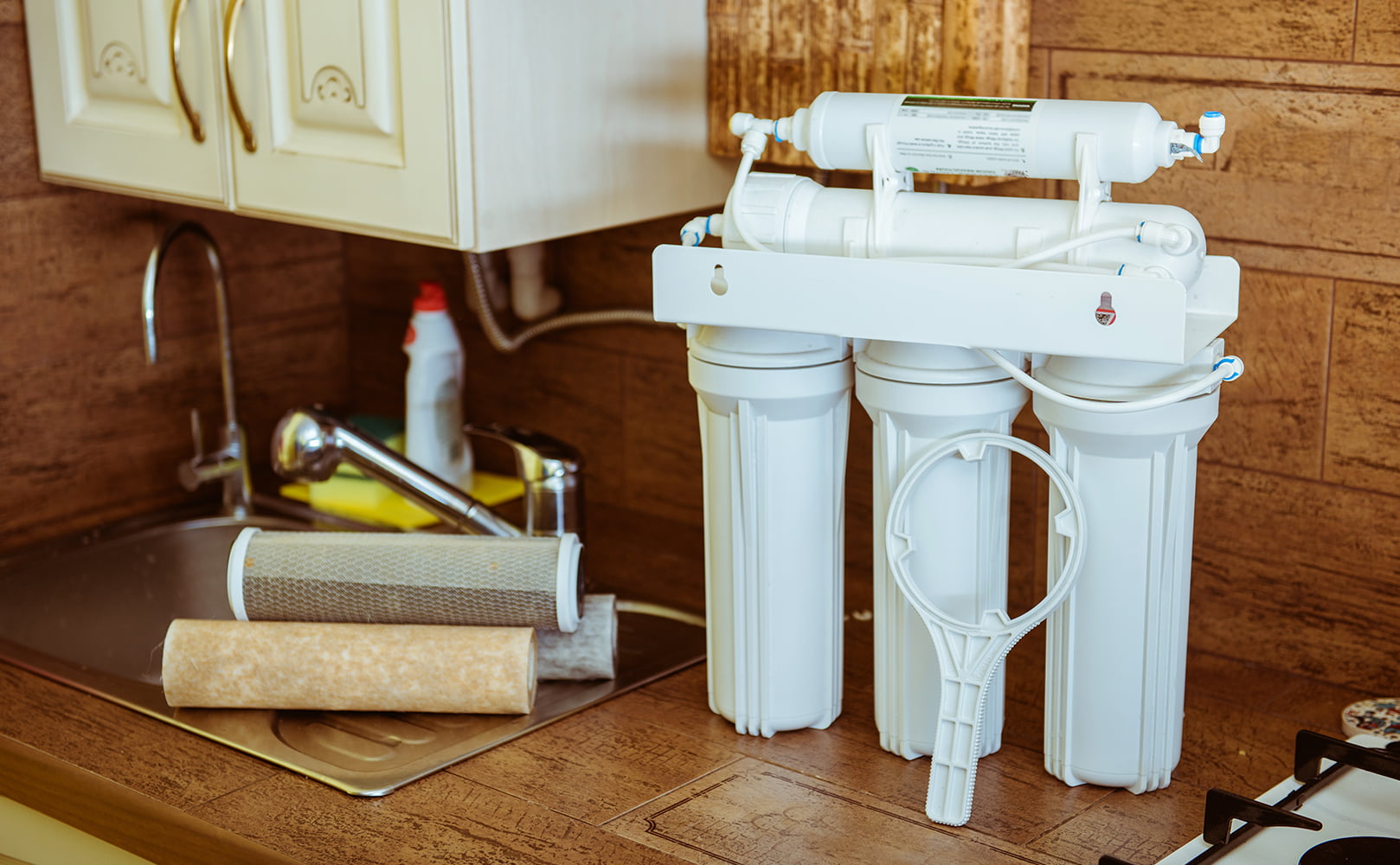
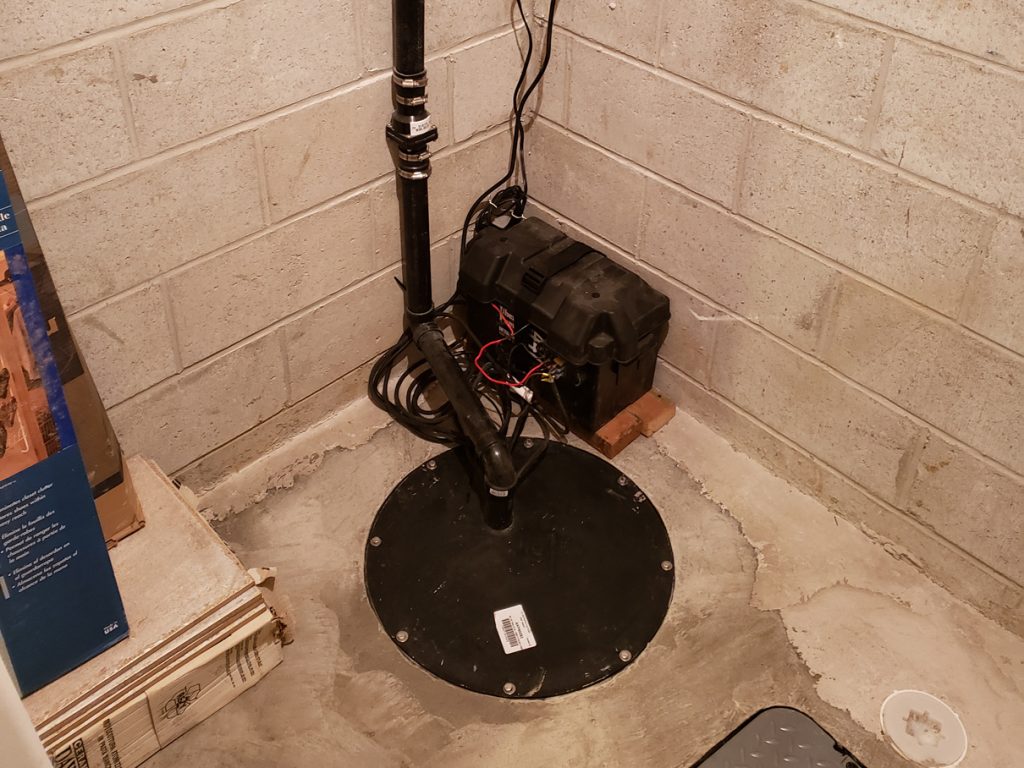
19.
Sump Pump Installation
Sump pump installation is a service that helps prevent basement flooding and water damage. To install a sump pump, a plumber will dig a pit in the lowest part of the basement or crawl space, and choose the right type of sump pump for your needs. They will then install the sump pump in the pit, connect it to a discharge pipe, and test it to ensure it’s working properly. Regular maintenance is also recommended to keep the sump pump functioning well. Sump pump installation is a wise investment to protect your property from water damage, and a licensed plumber can help you with the installation and maintenance of a sump pump.
